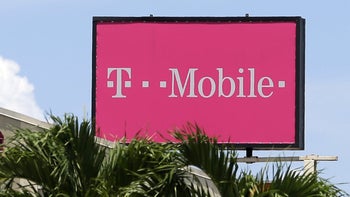Refusing to let T-Mobile off the hook, customers have filed class action lawsuit against it

If T-Mobile thought customers would swallow their anger about the recent price hike, it was wrong. A group of customers wants to take the company to court for not abiding by its commitment to never raise prices on some legacy plans.
In May, T-Mobile hiked prices on some plans by up to $5, which came as a shock to customers as those plans were supposed to be protected by Price Lock and Un-Contract Promise. The FCC and FTC have received thousands of complaints from angry customers.
Apart from a recommendation from the National Advertising Division (NAD) to stop advertising the "Price Lock" policy, no concrete action has been taken against the company so far, which even its own chatbot thinks is a real possibility.
Customers have made known in no uncertain terms that they won't rest easy until T-Mobile is reprimanded for its actions. A group of customers not happy about the carrier changing the terms that it previously implied would last a lifetime have filed a class action lawsuit against it.
The group of customers who have sued the company want to represent affected consumers in Georgia, Nevada, Pennsylvania, and New Jersey who were on ONE, Simple-Choice plan, Magenta, Magenta Max, Magenta 55 +, Magenta Amplified, or Magenta Military plan.
These plans were covered by what T-Mobile referred to as the Un-Contract guarantee in 2017.
In 2020, the company promised to not raise prices on its plans for three years to get approval for the Sprint merger. The class action suit says that the merger left consumers with fewer choices.
The consumers who sued T-Mobile also say that the company is guilty of common law fraud, common law false advertising, and negligent misrepresentation. They also accuse it of violating various laws and acts, including New Jersey’s Consumer Fraud Act and the Pennsylvania Unfair Trade Practices and Consumer Protection Law.
The plaintiffs want a jury trial. They have also requested injunctive relief as well as compensation for all class members.
In May, T-Mobile hiked prices on some plans by up to $5, which came as a shock to customers as those plans were supposed to be protected by Price Lock and Un-Contract Promise. The FCC and FTC have received thousands of complaints from angry customers.
Customers have made known in no uncertain terms that they won't rest easy until T-Mobile is reprimanded for its actions. A group of customers not happy about the carrier changing the terms that it previously implied would last a lifetime have filed a class action lawsuit against it.
They complain that they were essentially moved to a more expensive plan, despite an earlier guarantee that rates wouldn't change as long as a customer kept the same plan.
The group of customers who have sued the company want to represent affected consumers in Georgia, Nevada, Pennsylvania, and New Jersey who were on ONE, Simple-Choice plan, Magenta, Magenta Max, Magenta 55 +, Magenta Amplified, or Magenta Military plan.
These plans were covered by what T-Mobile referred to as the Un-Contract guarantee in 2017.
In 2020, the company promised to not raise prices on its plans for three years to get approval for the Sprint merger. The class action suit says that the merger left consumers with fewer choices.
The consumers who sued T-Mobile also say that the company is guilty of common law fraud, common law false advertising, and negligent misrepresentation. They also accuse it of violating various laws and acts, including New Jersey’s Consumer Fraud Act and the Pennsylvania Unfair Trade Practices and Consumer Protection Law.










Things that are NOT allowed: